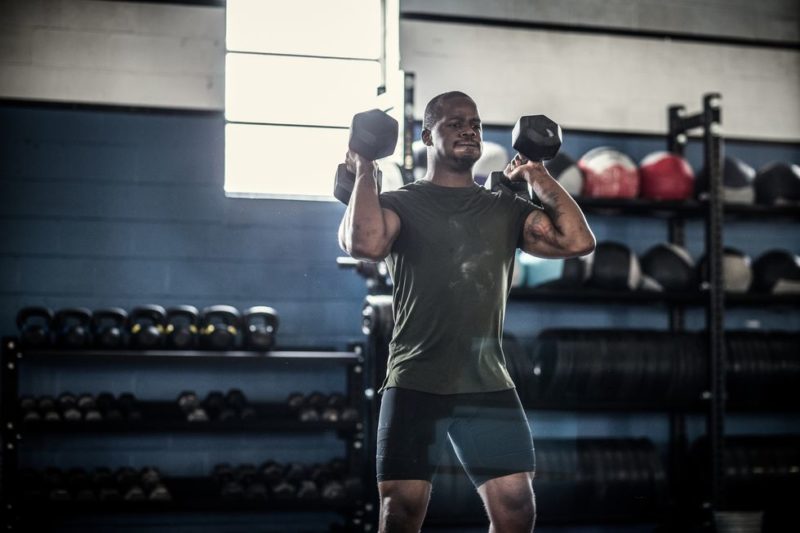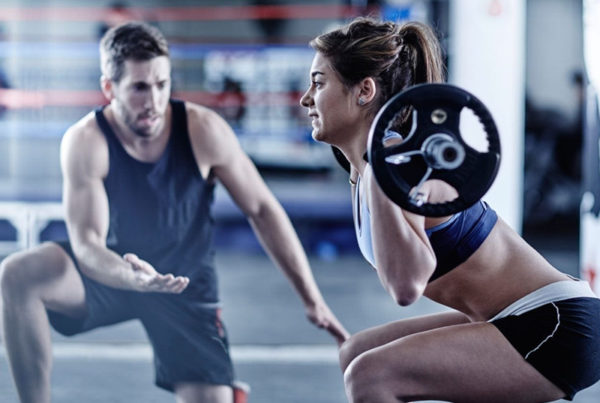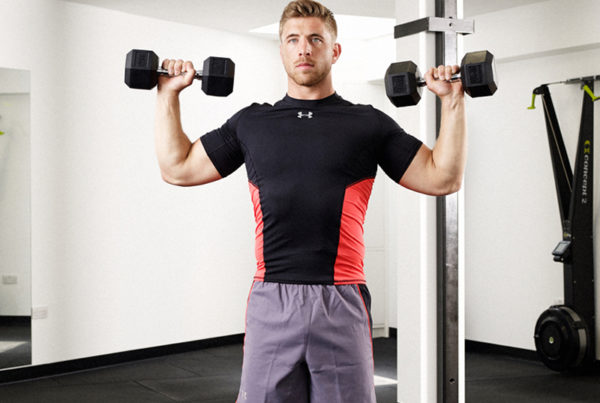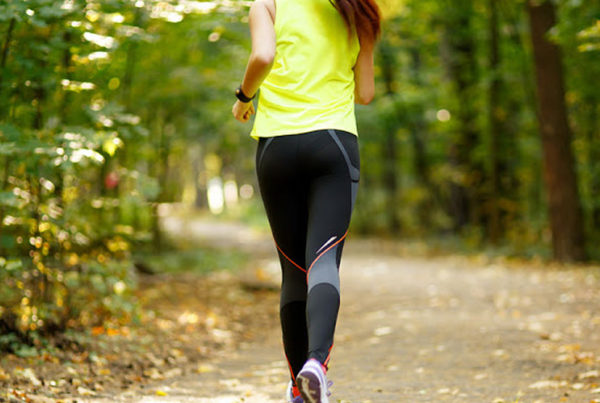Dumbbells are one of the most versatile, transportable and easily accessible items in any gym or home-users collection of kit.Although they range in price and size, a dumbbell is optimally utilised when you vary how you use them. The traditional curling and pressing motions are good. However, they usually become boring and people run out of ideas/ways to use them which makes them feel that they need to purchase larger weights or different equipment. This is quite often not the case. Just a little inspiration can open you exercise scope up to hundreds of alternatives that create a greater challenge. Leading to sculpting results and a well-defined body.
In this series we look at some arm exercises. The below explains the exercise and a single set. If you want to try this workout try a 45 second rest after each set and perform each one, three times before moving on. You should find that your muscles are burning by the last set and you may even find it challenging to finish each set. This is good news! It gives you something to work towards. If not, extend the repetitions by 20% or reduce the rest time to 30 seconds or increase the weight as a last resort.
Exercise 1: Overhead – Alternating drop press.
Starting position
Raise both dumbbells overhead (arms extended)
Exercise/movement
Lower one dumbbell to the shoulder whilst keeping the other in an extended position. Alternate arms
Considerations
Avoid leaning back and concentrate on keeping the top arm straight. Brace your core muscles. Control the movement throughout
Programming (Depending on the weight you are using)
Aim to perform 10 repetitions per arm (20 in total)
Benefits & target area
This is predominantly a shoulder exercise (Deltoid muscles) although your entire arm will be used to stabilise the movement. Holding the weights overhead prevent the arms from being in a rested position at any time during the entire exercises. The muscles will be under a greater tension for a longer period. Therefore, you will notice this will feel much harder than a traditional shoulder press exercise.
Exercise 2: Y-Reverse fly
Start position
Lean forwards from the waist, chest parallel to the floor, head looking down
Exercise/movement
Imagine doing the “YMCA” dance – but only the “Y” and in slow motion! Raise the arms slowly and lower to the waist under control. Remain in the bend forward position the entire time
Considerations
Don’t be tempted to round through your back. It should be flat, like a table. Contracting your core muscles should help to prevent this. Also keep the head looking down to prevent straining through the neck
Programming (Depending on the weight you are using)
12-15 repetitions are a good number to aim for
Benefits & target area
The lower trapezius muscles are the main muscle being worked (between the shoulders) and supported by the muscles in the back of the arms and shoulders. The muscles in the back of the shoulders and arms are essential to your posture and appearance. They give us an upright position and prevent our shoulders from rounding forwards. Good posture gives us confidence in our appearance and a healthy look.
Exercise 3: 21’s – Bicep Matrix
Start position
Standing or Kneeling (I prefer to kneel because it prevents leaning back when it gets tough)
Exercise/movement
Perform 7 repetitions of a Bicep Curl but only raising from the lower (extended arm) position to half way up (90 degrees)
Without resting – after your 7th curl – raise all of the way to the top (flexed position) and perform 7, top to half way lowering. After the 7th repetition – without resting – perform 7 full range – top to bottom Bicep Curls.
Considerations
As mentioned before. Leaning back can impact the lower back and allow for a greater momentum to assist the movement. Keep the body upright or try kneeling/seated alternatives
Programming (Depending on the weight you are using)
21 repetitions in total without stopping = 1 set
Benefits and target area
Targeting the front, upper arm. This exercise system will exhaust your arms. It’s a great way of training the body. Especially as the muscle starts to fatigue and begins and your ability to control and stabilise kicks in. This style of training helps muscles and joints to decelerate and adapt to forces that change frequently – as they do during daily life and work demands.
Exercise 4: 1 & ¼ rep Triceps Kickback
Start position
Either: Standing and bent over from the waist or kneeling with one hand on the floor
Exercise/movement
A Triceps kickback is an extension of the arm backwards. The difference in my adaption is not the exercise, but the in the way that each repetition is performed. After each extension of the arm, lower the weight a small distance, pause, extend again. This would be 1 repetition. Adding a ¼ movement to each!
Programming (Depending on the weight you are using)
12-15 repetitions per arm would be suitable. Perform all repetitions on a single arm before changing.
Benefits and target area
Often when lifting weight common mistakes are not work the muscle to its maximum potential, resting throughout the exercise or not performing the exercise for long enough. The extra part of each repetition encourages control and a greater contraction through the muscle as it reaches the end range. Therefore, creating higher tension and load within the muscle, without resting. Increasing your workout benefits and reducing the chances of performing the exercise incorrectly. This movement targets the back, upper arm. The Triceps muscle.
We hope you enjoyed this Dumbbell workout and will see it as the versatile exercise it is, make the most of them at your gym! Do you have a favourite Dumbbell routine? We’d love to hear your ideas below.




